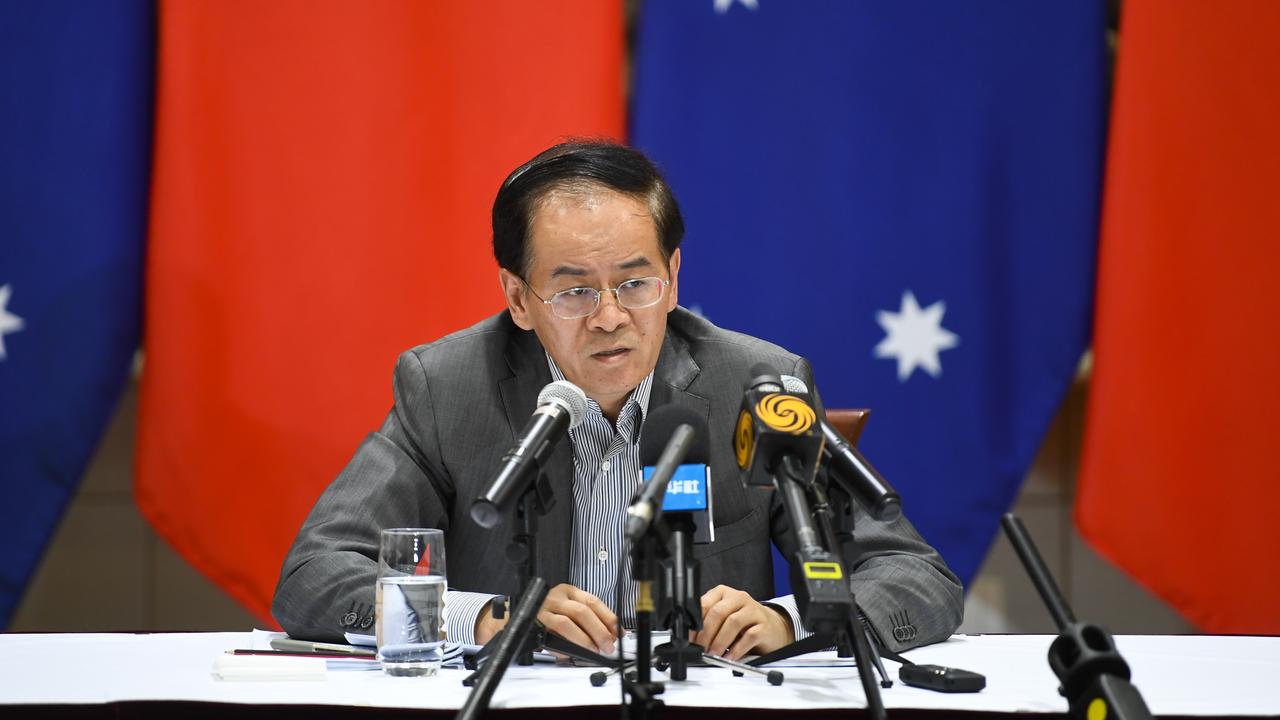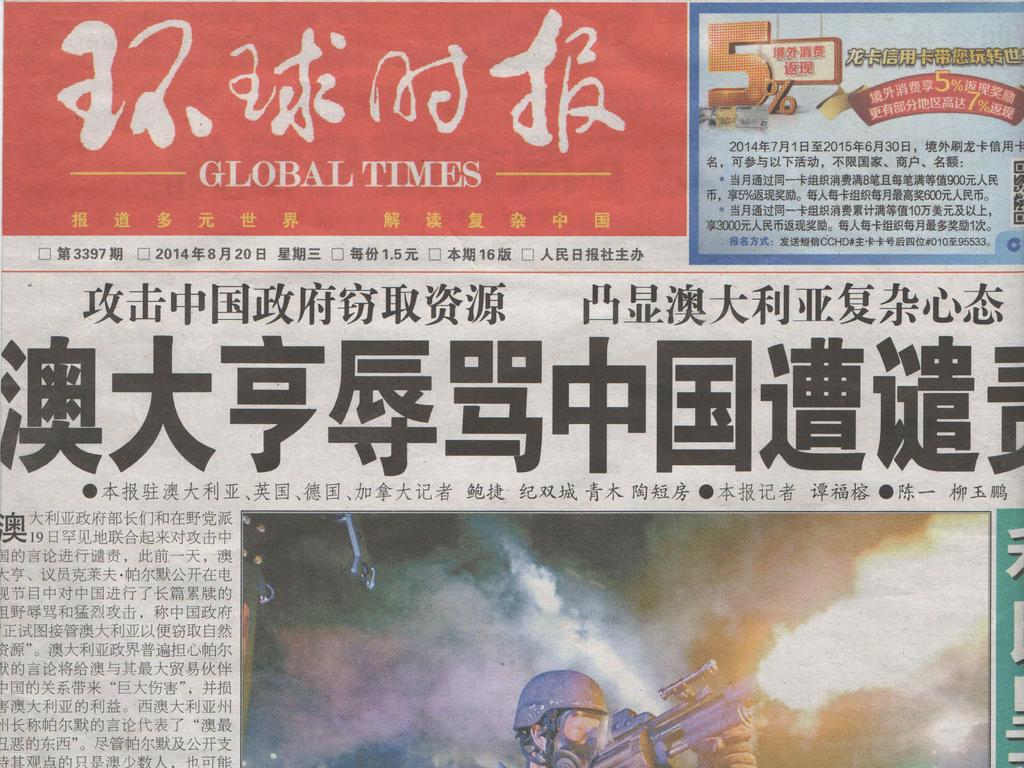Australia is more bound to China than our allies
Australia is more strategically dependent on China across key sectors of the economy than any other Five Eyes nation.

Australia is more strategically dependent on China across key sectors of the economy than any other Five Eyes nation, according to a new report by London think-tank The Henry Jackson Society.
Writing a contributed essay to the report, Liberal MP Andrew Hastie, the chair of parliament’s intelligence committee, has called on the Morrison government to establish a strategic industry plan “to build national self-reliance” in key industries.
Mr Hastie argues that building this self-reliance should involve direct government support, which would include time-limited tax incentives.
The Henry Jackson Society report is entitled: Breaking the China Supply Chain: How the Five Eyes can Decouple from Strategic Dependency.
It argues that the Five Eyes nations — Australia, the US, Britain, Canada and New Zealand — have since World War II been the chief advocates for hyper globalisation but this has led to a situation that has benefited Beijing disproportionately and allowed it to accumulate a dangerous degree of strategic power over the Five Eyes nations and their other allies.
Building on work done in the Five Eyes critical infrastructure forum, it examines the dependency of each nation across a range of strategically significant products and components.
It finds that Australia is the most strategically dependent on China, with dependence across 595 categories of strategically important goods.
This is more than any other nation in the group and compares with the US at 414 and Britain at 229.
The report also finds that Australia is dependent on China for 167 categories of goods that service critical applications. Australia is also dependent on China for 35 categories of goods essential to the technologies of the so-called fourth industrial revolution.
This is a term that applies to the internet of things and to the hyper accelerated digital management and construction of many technologies, including biotechnology.
The report notes China’s dominance in the production of magnesium, which is essential in transport, energy and construction industries, as well as the country’s dominance in the production of active pharmaceutical ingredients.
It argues that each of the Five Eyes nations should research and publish studies of their dependency on China in raw materials, components and complex supply chains, as well as conducting national reviews of strategic industries.
Mr Hastie supports the report’s conclusions in part by recounting recent “thinly disguised threats of economic coercion from China’s ambassador to Australia”.
He writes that the report makes for “troubling reading”, especially concerning Australia’s strategic dependence on China.
Further, he argues that: “Our strategic dependency on critical imports makes us vulnerable to not only economic coercion but also supply chain warfare.”








To join the conversation, please log in. Don't have an account? Register
Join the conversation, you are commenting as Logout